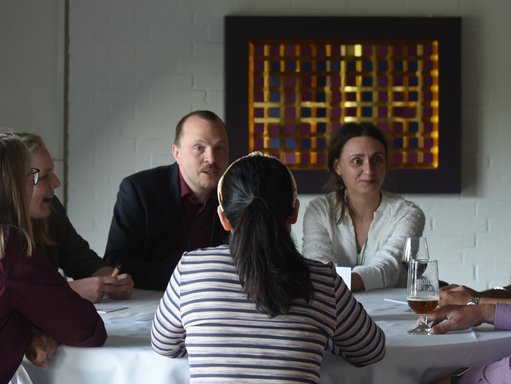Start with the “why”: Lessons in scientific communication from Stephane Duval
By Shaila Ann Sigsgaard
In the rush of data collection and publishing, it’s easy to overlook how we talk about our work. Whether speaking to peers, policymakers, or even your grandmother, knowing your audience and clearly expressing why your research matters makes all the difference.
Stephane duval has been part of dsm-firmenich since 2008, and today he serves as Global Innovation Science Lead for Monogastrics as well as member of the PIG-PARADIGM Industry Advisory Board. With more than 15 years in the field, his perspective on science and communication blends depth with down-to-earth wisdom. In an interview at the PIG-PARADIGM Annual Meeting, Stephane Duval shares insights into how to communicate your scientific research in a way that truly resonates by tailoring your message to your audience and starting with why it matters:
Duval believes that as scientists, understanding your audience is fundamental: “If I’m speaking to fellow scientists and I don’t use the proper terms, I lose credibility. But the opposite is true too - if I speak to a non-scientific crowd and I throw a bunch of technical terms at them; they won’t understand me.”
He shares a vivid example: “If I’m talking to my grandmother about my work and I start explaining how many microliters I put in an Eppendorf or how many, I apply to a centrifuge - she’ll be completely lost. She doesn’t know what an Eppendorf is. That would be missing the target. That would be poor communication.” Instead, Stephane offers a simple, powerful piece of advice: “Always start with the why. Why did you wake up this morning? Why are you running this particular study? Once people understand your ‘why,’ then they’ll start paying attention to your ‘what and how.’”
His perspective on scientific responsibility is equally striking. “Science isn’t about making things work,” he says. “It’s about testing hypotheses. You’re not responsible for whether Option A or Option B works better - you’re responsible for applying the right methodology to find out.”
Reporting results, Duval’s eyes, must go beyond success. “It’s not about what worked,” he insists. “It’s about the initial idea, the “why”, and what was done to investigate- whether it worked or not.
He closes with a reflection on how scientists can serve a broader purpose: “There’s reporting to your peers, yes. But there’s also reporting to a broader audience. Communicating what was done - and why it matters - not just to the scientific community but to the rest of society. If you’re waking up every morning to work on something, it must carry some importance for other people too."
